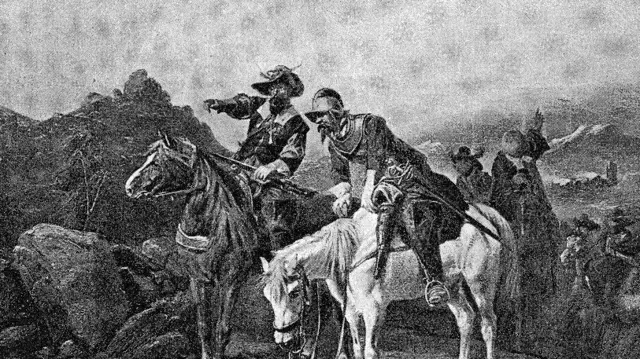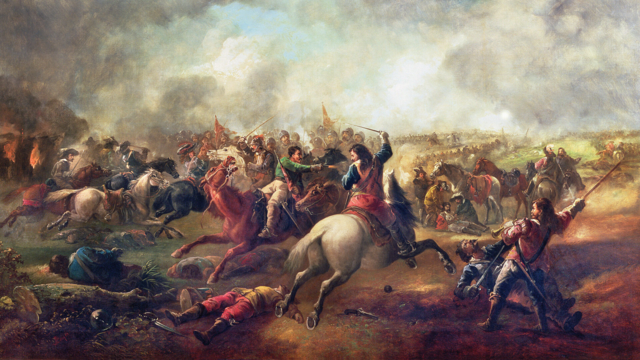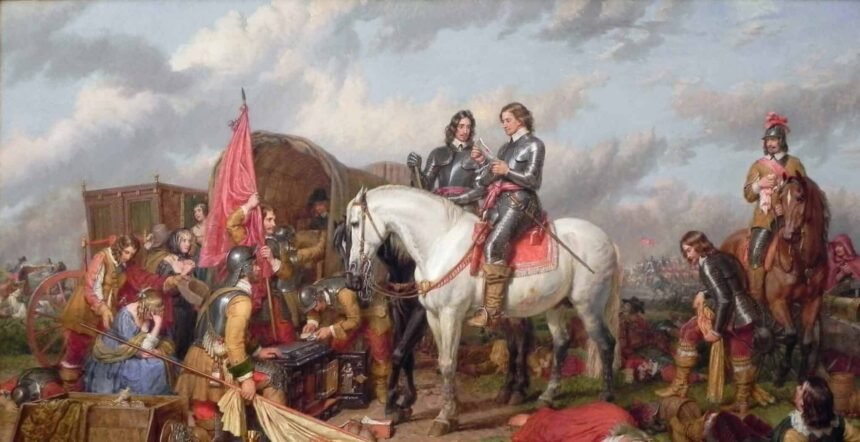Battle of Langport Civil War: The Conflict That Changed England

In July 1645, the Battle of Langport Civil War became a decisive turning point during the English. The Parliamentarians defeated the Royalists, seizing control of Somerset — a region of critical strategic importance. This historic clash marked a pivotal moment in England’s political evolution, ultimately contributing to the downfall of the monarchy and the rise of Parliamentary rule.
Why the Battle of Langport Civil War Mattered
This wasn’t just a battle — it shattered Royalist control of the West Country, a region of immense strategic importance. The Parliamentarian victory crushed Royalist morale and dismantled their ability to recover. As their cause collapsed, the stage was set for dramatic political shifts, including the execution of King Charles I and a temporary end to the monarchy. This critical engagement played a defining role in shaping England’s future.
Commanders of the Battle of Langport: Fairfax vs. Goring
Lord Goring led the Royalist forces for King Charles I. Sir Thomas Fairfax commanded the Parliamentarian New Model Army. This force was disciplined and well-organized. Historian Julian Humphrys from the Battlefields Trust described the Royalist troops as poorly paid and undisciplined. Locals resented them for constant plundering.
Strategy and Outcome of the Battle of Langport Civil War
The Royalists camped east of Langport near Huish Episcopi. They placed musketeers in hedgerows and positioned cannons at the main ford. Their goal was to delay the Parliamentarians and retreat to Bridgwater. But they underestimated their opponents.

The Parliamentarians launched a swift attack. Their musketeers cleared the hedgerows at Picts Hill. This allowed cavalry to storm the crossing and overwhelm the Royalist lines. Resistance collapsed in minutes.
Oliver Cromwell and the Impact of the Battle of Langport
Sir Thomas Fairfax led the overall command. Oliver Cromwell, though a minor figure at the time, played a key role. He saw the New Model Army’s efficiency in action. This boosted his military reputation. Over time, Cromwell gained full command of Parliament’s army. His rise led to his future leadership as Lord Protector.
Civilian Suffering During the Battle of Langport Civil War
The war hit civilians hard. Armies looted for supplies, forcing locals to defend themselves. They formed “clubmen” groups using simple weapons. Trade stopped, disease spread, and homes were destroyed.
Historian Julian Humphrys noted the high human cost. A larger portion of the population died during this war than in World War I.
Archaeological Legacy
Today, the battlefield still tells its story. People using metal detectors regularly uncover musket balls and pistol rounds in the fields. These relics are reminders of that fateful day.
Commemorating the Battle of Langport Civil War Today

Though often forgotten, the Battle of Langport Civil War remains vital to England’s history. It shows the impact of shifting power, public suffering, and political evolution. This battle helped pave the path toward constitutional change and a new national identity.




